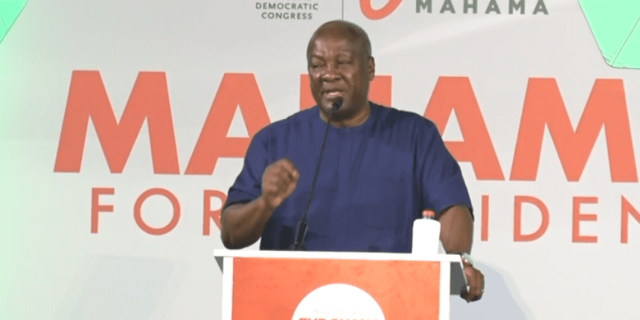Professor Ernest Kofi Abotsi, the Dean of the University of Professional Studies, Accra (UPSA) Law School, has expressed cautious optimism regarding President-elect John Dramani Mahama’s commitment to running a lean government.
While lauding the proposal as a positive start, Professor Abotsi warned that the temptation to reward political supporters at the expense of effective governance could undermine public trust in Mahama’s pledge.
Ahead of the 2024 general elections, Mahama reaffirmed his vow to streamline the government, promising to appoint no more than 60 ministers. He argued that this reduction would significantly cut government expenditure, eliminate inefficiencies, and minimize waste by re-aligning and merging ministries, departments, and agencies. “We started working on this, by realigning and merging ministries, departments and agencies. And we will appoint highly efficient, effective, and smart appointees to eliminate duplication and waste,” Mahama stated during his Governance Forum on October 31, 2024, in Accra.
Mahama’s promise to form a smaller, more efficient government resonated with many voters, contributing to his victory in the elections. However, Professor Abotsi cautioned that while the intention behind a lean government is commendable, the practical implications could pose challenges. In a post on his X page, the legal expert stressed that political patronage—where appointments are made primarily to reward political supporters—could end up compromising the very goal of a streamlined government.
“The incoming administration has promised a leaner government! That is a positive start,” Professor Abotsi said. “But the tendency to compensate political activists at the expense of the state breaches the constitutional trust. Too many ministers mean overlap and chaos.”
The professor’s remarks highlight a key concern about the balance between political loyalty and effective governance. Appointing a large number of ministers, even with the intention of rewarding political supporters, could lead to overlap, duplication of efforts, and potential inefficiency in government operations. Such a scenario would not only jeopardize Mahama’s promise but could also diminish the public’s confidence in his ability to manage the state’s resources effectively.
As Mahama prepares to implement his governance strategy, his administration will need to carefully navigate the complexities of political appointments, ensuring that any reductions in government size result in true efficiency rather than political fragmentation. The promise of a lean government is certainly an encouraging start, but its success will depend on the practical steps taken to manage both political interests and public expectations.
The incoming admin. has promised a leaner gov’t! That is a positive start. But the tendency to compensate political activists at the expense of the state breaches the const’nal trust. Too many ministers means overlap & chaos not to mention that leaner has often =‘d efficiency!
— Prof. E. Kofi Abotsi (@ProfAbotsi) December 27, 2024
Send your news stories to newsghana101@gmail.com
Follow News Ghana on Google News


















